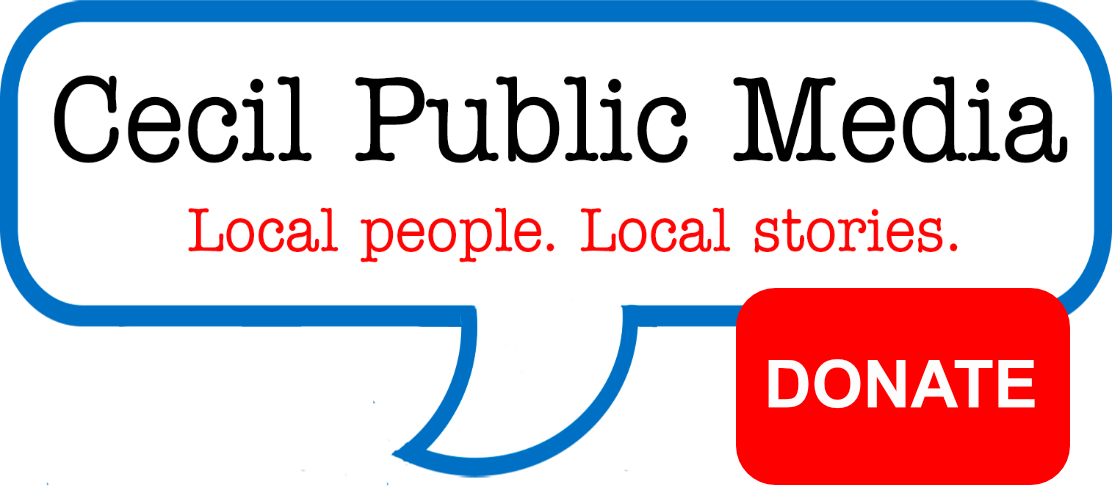July 24th, 2024
MILWAUKEE — I’m standing across the street from the apartment where I lived, back in 1983, in this city’s River West neighborhood.
The street looks substantially the same, though I’m sorry to discover that Harry’s Chapel, the tavern that used to be two doors down, where a 12-ounce glass of Miller High Life on tap sold for a quarter, is gone.
If I squint hard enough, I can see my 21-year-old self, sitting in the sun on the second-floor balcony, writing letters to family and friends by hand.
What I can’t see as clearly, as I traverse this Bavarian-inspired city during the week of the Republican National Convention, are the folks I came here to cover, the members of Maryland’s convention delegation.
That’s because the leaders of the state GOP, in a departure from anything I’ve ever experienced — and this is the sixth Republican convention I’ve covered and my 14th overall, if you include the Democrats’ — have decided that all of the delegation’s events will be off-limits to the media. As will the delegates themselves.
In the days leading up to the convention, and into this week, the party’s executive director, Adam J. Wood, asked me and other reporters to submit questions to delegates through him, with no guarantees that he’d be able to provide answers or get these people on the phone.
Beginning Sunday, and throughout the week, a reporter for the Baltimore Sun, two reporters from the University of Maryland’s Capital News Service and I, individually and as a group, have been asked to leave the hotel in downtown Milwaukee where the delegation is staying and meeting. Once I was escorted out of the hotel by a party functionary.
On Wednesday, all four of us arranged to show up at the hotel, a beautiful 1896 building that once was the headquarters for a large insurance company, to try to get into the delegation breakfast together. Wood once again, almost apologetically, reminded us we would not be allowed in.
“It’s the chairwoman [Nicole Beus Harris], it’s the national committeeman [David Bossie], and I can’t override that,” he said.
Later in the morning, as the delegation breakfast was breaking up, all four of us were escorted out of the building by the hotel general manager, at the request of the state party.
Maryland GOP delegates have been instructed not to speak to reporters without permission from the party higher-ups — including on the floor of the Fiserv Center, the arena where the convention itself is taking place.
It’s the Maryland GOP’s right to set the rules for media access at a political convention — or anyplace else. It’s not a public entity, and they aren’t bound by open meetings laws.
But what is lost when a political party refuses media access at its most high-profile quadrennial event?
For the party, the answer starts with this: Free publicity.
For four mornings during the week of a national political convention, state delegations hold breakfasts at the hotels where they’re staying. These feature political speeches, tips on partisan talking points, and a look ahead to the day’s events in the convention city and on the convention floor.
In my experience, these breakfasts almost always create news and generate media coverage. Delegations generally attract an array of speakers from across the country, not just from the home state.
In my memory, two Maryland Republican breakfasts stand out. During the 2000 GOP convention, in Philadelphia, Doro Bush Koch, sister of the presumptive presidential nominee George W. Bush and a Marylander, told a hilarious story about having to climb awkwardly to her seat in the convention hall the previous evening in the presence of her father, former President George H.W. Bush, and former President Gerald Ford. It was utterly charming.
During the 2016 convention, in Cleveland, then-U.S. Rep. Mark Meadows (R-N.C.), the head of the House Freedom Caucus at the time and later President Donald Trump’s chief of staff, was a Maryland GOP breakfast speaker. He told the group that in his perfect world, Maryland Rep.Andy Harris (R) would be a prime candidate for speaker of the House. That was a surprise.
Wood told us Wednesday that speakers at the delegation breakfasts this week have included Louisiana Gov. Jeff Landry (R), Arizona GOP Senate nominee Kari Lake, U.S. Rep. Cory Mills (R-Fla.), and Congressman Harris, the husband of the state GOP chair. That’s an interesting lineup!

I would have covered these speeches as straight news stories. I would have asked the Maryland delegates for their reactions to what they had heard. I was looking forward to traveling around town with the delegation this week, to better understand events as they were unfolding, from their perspective. I’m sure I could have produced some entertaining and informative news briefs.
I was planning to spotlight emerging party leaders and other key players and use what I see here as a building block to future political coverage. I’m always, on the political beat, looking for the next big thing.
I’m still trying to do all that, but it’s a lot harder to succeed under these conditions — and requires way more psychic energy than I ought to be expending.
But this isn’t meant to be about me and my desire to deliver solid content for our readers — and justify the expense to my nonprofit news outlet for sending me here.
Most state delegations to this convention, as I understand it, are welcoming reporters to their daily breakfasts. Some of these events are being broadcast live on C-SPAN.
The Maryland Democratic Party will continue to allow reporters at most of its events during the national convention next month in Chicago — even though that convention is shaping up to be considerably messier and far less joyful than this one has been.
Here’s another missing element: National conventions are great schmoozefests. For state-based reporters, they’re a rare opportunity to get to know party leaders and activists better, in a less formal setting, away from the rigors of the daily government grind — and for newsmakers to get to know us better.
I often think fondly of that 2000 Republican convention in Philly. It was there when I truly got to connect with a guy named Michael Steele, and where I got to know a guy named Bob Ehrlich better. Whatever happened to them?
I was also struck, at that convention, by the ideological diversity of the Maryland delegation. The group included Ellen Sauerbrey, the two-time gubernatorial nominee who is basically the founder of the modern state GOP.
Also on hand — though I can’t recall if she was formally part of the delegation — was then-U.S. Rep. Connie Morella, a genuine Republican liberal. She picked up an award that week from the National Education Association, back in the days when the teachers’ union boasted that dozens of GOP delegates from around the country were teachers. That sure seems like ancient history.
Look, this Republican Party is a lot different from the GOP of old. There’s far less ideological diversity in the party, and successful Republican politicians from Donald Trump to Larry Hogan have figured out how to communicate with the public directly, without the filter of news outlets.
There’s a conservative media ecosystem now that was only beginning to evolve two dozen years ago, and many Republicans have become extremely hostile to the mainstream media. The image of angry rally-goers giving the finger to reporters minutes after Trump was shot at a rally in Pennsylvania last week was chilling and will be hard to forget.
So all this is of a piece, I suppose.
But Republicans are deep in the minority in Maryland. I’d like to hear someone explain how severely curtailing the ability of the state’s media outlets to do our jobs is going to expand their base and help them reach the persuadable public.
I knew this would be a nostalgic week for me, being in Wisconsin, where I lived for five years. I just never imagined I’d be feeling nostalgia for a time-honored practice that, for one Maryland political party at one moment in time, at least, appears to be gone.



